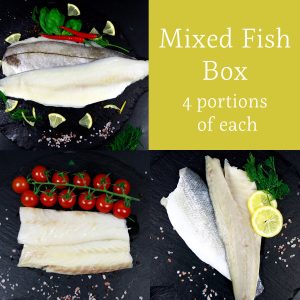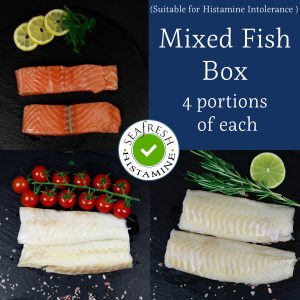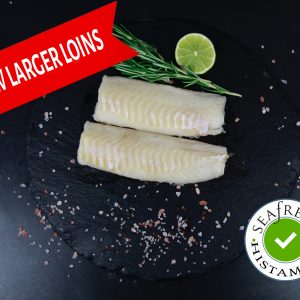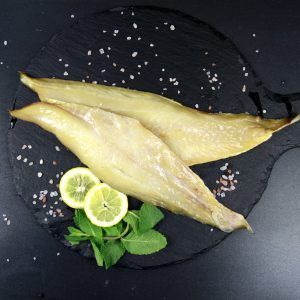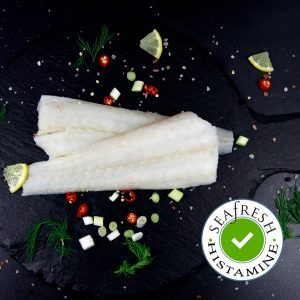Understanding the Value of Frozen Haddock
Frozen Haddock holds a distinct value in the seafood industry, appreciated for its convenience and extended shelf life. The ability to be stored in the freezer for an extended period without compromising its quality makes it a versatile option for consumers. An added benefit is the ease of access – available in frozen form, neatly packed in boxes at supermarkets and grocery stores, ready to be cooked. The value of frozen haddock also links back to its nutritional profile, offering a rich source of essential nutrients like protein, omega-3 fatty acids, and vitamins. Moreover, its affordability and year-round availability further enhance the appeal of frozen haddock among seafood enthusiasts.
Significance of Frozen Haddock in the Seafood Industry
Frozen haddock holds a crucial place in the seafood industry due to its versatility and convenience. As a popular choice for consumers seeking a mild and flaky fish, frozen haddock offers a variety of culinary options. Its availability year-round ensures consistent supply, making it an essential component in seafood markets and restaurant menus across the globe. With the numerous nutritional benefits associated with haddock, including being a rich source of protein and essential nutrients, frozen haddock continues to be a sought-after option for health-conscious individuals and seafood enthusiasts.
The demand for frozen haddock remains strong within the seafood industry, contributing significantly to the market’s growth and sustainability. Manufacturers and suppliers value frozen haddock for its longer shelf life and ease of transport, allowing the fish to reach a wider consumer base efficiently. Additionally, the ability to freeze haddock at peak freshness helps retain its quality and flavor, ensuring that consumers can enjoy premium seafood at their convenience. The significance of frozen haddock in the seafood industry is evident, reflecting its enduring popularity and positive impact on the market.
Nutritional Profile of Frozen Haddock
Frozen haddock is not only a convenient option for seafood lovers but also a nutrient-rich choice. Packed with lean protein, omega-3 fatty acids, and essential vitamins and minerals, frozen haddock offers a healthy addition to your diet. A single serving of frozen haddock can provide your body with a significant amount of protein, making it a filling and satisfying meal option. Additionally, the omega-3 fatty acids found in frozen haddock support brain health and reduce inflammation in the body, promoting overall well-being. With the nutritional value of frozen haddock highlighted in this sidebar, it’s clear that this fish is a standout option for those looking to enhance their dietary intake.
Buying and Storing Frozen Haddock
When it comes to purchasing frozen haddock, it is essential to prioritize quality to ensure a delicious end result in your cooking endeavours. Look for options that are vacuum-sealed or individually quick-frozen to maintain freshness and flavour. Brands like Seafresh’s Frozen Haddock are known for their superior quality and taste. Proper storage is also key in preserving the integrity of your frozen haddock. Make sure to keep it well-wrapped in the freezer to prevent freezer burn and maintain its texture. By choosing high-quality frozen haddock and storing it correctly, you set yourself up for successful and enjoyable culinary experiences.
Tips to Choose Quality Frozen Haddock
When selecting frozen haddock, start by examining the packaging for any signs of damage or freezer burn. Quality frozen haddock should have a firm texture and appear free of ice crystals. Look for clear and concise descriptions on the packaging that specify the product as frozen haddock, not just generic terms like “white fish fillets.” Additionally, reading reviews from other consumers can provide valuable insights into the taste and overall quality of the frozen haddock you are considering.
For a premium selection, opt for frozen haddock that is individually quick frozen (IQF) to ensure freshness and prevent the fillets from sticking together. Be cautious of packages that contain excessive frost or liquid, as this could indicate improper storage or thawing. Overall, prioritize frozen haddock products that exhibit a vibrant colour, and ocean-fresh scent, and are void of any off-putting odours or discolouration.
Best Practices for Freezer Storage of Haddock
To ensure optimal quality and freshness, proper freezer storage of Frozen Haddock is crucial. When storing Frozen Haddock, it is essential to follow news information policies to keep abreast of any updates related to squid and other seafood products. Always store frozen Haddock in airtight containers or sealed bags to prevent freezer burn and maintain its quality. Furthermore, removing the skin before freezing can help preserve the flavour and texture of the Frozen Haddock, ensuring a delightful culinary experience. Proper storage techniques are key to preserving the quality and taste of Frozen Haddock for an extended period.
Cooking with Frozen Haddock
Methods of thawing and preparing frozen haddock before cooking are crucial for maintaining the texture and flavour of the fish. To properly thaw frozen haddock, it is recommended to place it in the refrigerator overnight or use the defrost setting on the microwave for a quicker thaw. Once thawed, pat the fish dry with paper towels and season it according to the chosen haddock recipe. Whether grilling, baking, or pan-searing, frozen haddock can be cooked to tender perfection with a variety of herbs, spices, and sauces. By following these simple steps, you can whip up a delicious meal using frozen haddock straight from the freezer to the table.
Methods of Thawing and Preparing Frozen Haddock Before Cooking
To properly prepare frozen haddock for cooking, it is essential to thaw it thoroughly in the refrigerator overnight. This slow thawing process ensures that the fish retains its moisture and texture, making for a more enjoyable dining experience. Once the haddock is fully thawed, pat it dry with paper towels to remove excess moisture before seasoning it according to your recipe. Taking the time to thaw frozen haddock properly is crucial in preserving its delicate flavor and quality.
When it comes to preparing frozen haddock for cooking, avoid using hot water or a microwave to thaw the fish quickly, as this can negatively impact its texture and taste. Instead, opt for the refrigerator thawing method to maintain the integrity of the haddock. After thawing, consider marinating the fish in a mixture of herbs, spices, and citrus juices for added flavor. By following these simple steps, you can ensure that your frozen haddock dishes are not only delicious but also packed with all the nutritional benefits this versatile fish has to offer.
Delicious Recipes and Cooking Tips for Frozen Haddock
Whether you prefer a classic approach to cooking frozen haddock or want to try a more innovative recipe, there are numerous delicious options to explore. For a simple yet flavorful dish, consider baking your frozen haddock with a sprinkle of herbs and lemon juice. Another tasty idea is to pair frozen haddock with monkfish tail to create a seafood medley that is sure to impress. If you’re looking to add a twist to your menu, haddock fillet, skinless and boneless, can be marinated in a zesty sauce and grilled for a healthy and scrumptious meal. Including frozen haddock in your culinary repertoire can not only diversify your meals but also help you experiment with new flavors and textures.
Health Impacts of Including Frozen Haddock in Your Diet
Evaluating the health impacts of frozen haddock in your diet is crucial for making informed dietary choices. Frozen haddock is a nutrient-rich food that offers a plethora of health benefits. This fish is a fantastic source of high-quality protein, essential omega-3 fatty acids, vitamins, and minerals. Incorporating frozen haddock products into your meals can contribute to heart health, brain function, and overall well-being. Additionally, frozen haddock is low in calories and saturated fats, making it a great option for those looking to maintain a healthy weight. By including frozen haddock in your diet, you are not only enjoying a delicious and versatile ingredient but also reaping the numerous nutritional advantages it offers.
Evaluating the Health Benefits of Frozen Haddock
Frozen haddock is a highly nutritious option for individuals looking to incorporate more seafood into their diet. Compared to a 200-gram salmon fillet, frozen haddock offers a leaner protein source with lower fat content. The nutritional profile of frozen haddock is impressive, boasting high levels of protein, omega-3 fatty acids, and essential nutrients like vitamin D and B vitamins, making it a well-rounded choice for a healthy diet.
In a review comparing different types of seafood, frozen haddock stands out for its versatility and mild flavour, making it a popular choice for various culinary creations. Whether baked, grilled, or pan-seared, frozen haddock retains its moisture and flakiness, making it a favourite among seafood enthusiasts. Additionally, when compared to other fish varieties like cod loin skinless, frozen haddock offers a similar nutritional profile at a more budget-friendly price point, making it an excellent choice for health-conscious consumers.
Concerns and Possible Side Effects of Overconsumption
Consuming excessive amounts of frozen haddock can lead to health issues due to its high mercury content, which may be harmful to pregnant women and young children. In addition, overindulgence in frozen haddock may result in elevated cholesterol levels, especially if cooked with rich butter or creamy sauces. It’s important to maintain a balanced diet and moderate your intake of frozen haddock to avoid these potential side effects.
Moreover, overconsumption of frozen haddock can impact marine ecosystems as well. The demand for frozen haddock has led to overfishing in some regions, affecting the balance of marine life. By being mindful of sustainable fishing practices and choosing certified sources, consumers can help protect not only the population of haddock but also other species like prawns, eels, and various seafood that share the same habitat. Remember, our choices as consumers have a significant impact on the environment, and it’s essential to consider the broader implications beyond just the footer of our plates.
Sustainability and Ethical Concerns Surrounding Frozen Haddock
The sustainability of the frozen haddock industry is a pressing matter that draws attention to the ethical concerns surrounding the harvesting of haddock. With an increasing demand for frozen haddock globally, it is crucial to monitor fishing practices to ensure the preservation of haddock populations in the long term. Several initiatives and organizations have been put in place to regulate the harvesting of haddock, such as limiting the catch sizes and implementing seasonal fishing restrictions. By registering the number of haddock caught and promoting responsible fishing methods, the industry can work towards a more sustainable future for frozen haddock.
The Role of Sustainable Fishing in the Frozen Haddock Market
Sustainable fishing practices play a critical role in the market for frozen haddock. Ensuring that haddock populations are harvested responsibly and replenished adequately is essential to maintaining a steady supply of high-quality frozen haddock products for consumers. By adhering to sustainable fishing methods, the industry can safeguard the availability of frozen haddock fillets and other haddock products for future generations, supporting both environmental conservation and economic stability in the market for frozen haddock.
Conclusion
Evaluating the health impacts of including frozen haddock in your diet is crucial in making informed dietary choices. With its rich nutritional profile, frozen haddock stands out among other price fish types like trout. Understanding the significance of frozen haddock in the seafood industry sheds light on the importance of sustainable fishing practices to maintain fish populations for future generations. By exploring the delicate balance between health benefits and potential side effects of overconsumption, consumers can make mindful decisions when incorporating frozen haddock into their meals. Ultimately, recognising the value of frozen haddock not only benefits our health but also promotes ethical and sustainable choices in the seafood market.

